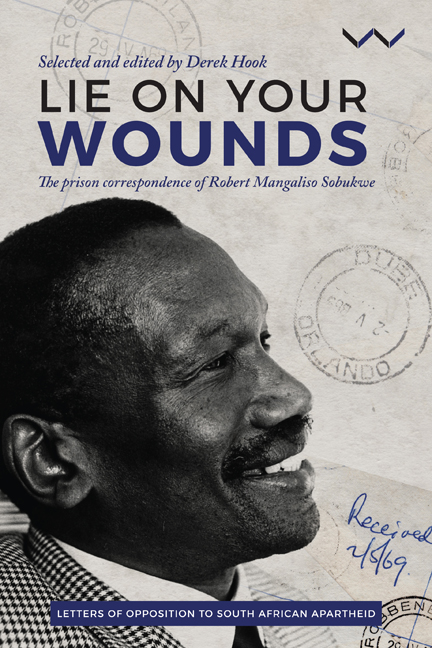Preface by Otua Sobukwe
Published online by Cambridge University Press: 30 May 2019
Summary
My Robben Island Awakening
During the apartheid regime, Robben Island was the most notorious prison in South Africa. Enclosed in its prison walls were struggle icons whose names we continue to celebrate today – Sisulu, Mandela and many other unsung heroes. Amongst them but purposely separated was Robert Sobukwe, a freedom fighter who was banned to solitary confinement for leading an anti-pass march campaign that galvanised people on the path to the country's democracy. About thirty years later, the same island became the home of a young, adventurous little girl – me; his granddaughter. I lived on the island with my uncle who worked there for 8 months.
Paradoxically, Robben Island is one of the most beautiful places in the world. But when you put yourself in the shoes of a prisoner, there comes a shift of perspective.
Suddenly, things begin to lose their beauty.
The blueness of the sky loses its colour, as candyfloss clouds morph into grey patches, the singing tune of seagulls begins to mimic a pained cry, the once tranquil ebb and flow of the sea is now melancholic, yearning, and, more so, the mainland, its shimmering lights, their faintness, is no longer picturesque, no longer romantic, but just a cold reminder of the separating distance and the harsh reality, the harsh juxtaposition, that you are indeed alone.
The seven-year-old me was oblivious to this atmosphere of solitude. The place where my grandfather stood for his battle, longed for his family, and wept in his loneliness was the same place that framed my warm, explorative childhood. I didn't realize the weight of the island nor the significance of its history.
But ten years later, I understood. Intimately complex and profound – I realised that somehow my surroundings had brought me closer to a man that I had never met and opened my eyes to an identity I had never fully grasped.
That my roots are of an African soil has never been an incongruity to me. I have always wholly embraced my African identity; I am of its branches, its rivers, its auburn sunsets. However, when I returned to Robben Island, now seventeen, it occurred to me, this sudden epiphany, that I am not only a reflection of Africa, but a continuation of AfriKa. And these two Afric(k)as are not the same; one is the vessel and the other the spirit.
- Type
- Chapter
- Information
- Lie on your WoundsThe Prison Correspondence of Robert Mangaliso Sobukwe, pp. vii - viiiPublisher: Wits University PressPrint publication year: 2019



